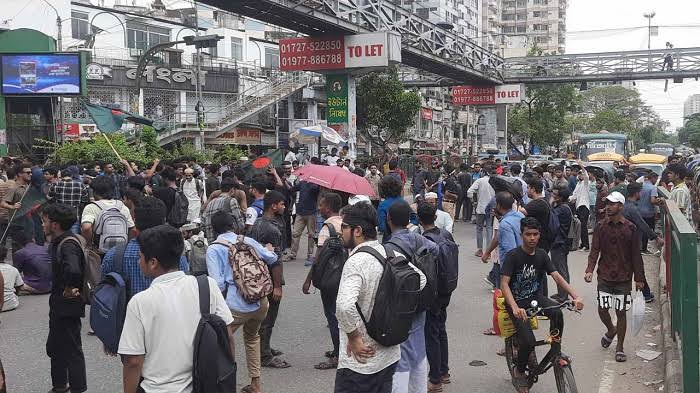Staff Correspondent
Published:2024-11-29 15:56:49 BdST
Govt faces tough test in restoring order
Following the July-August uprising, people expected order to return across all sectors, governed by justice and principles. The expectation grew stronger after Nobel laureate Professor Dr Muhammad Yunus assumed leadership of the interim government. With the support of protesting students, the general people, and political parties, there was hope for swift improvements.
However, public expectations and trust are beginning to waver as they see disorder persisting everywhere. The government now faces a critical challenge to restore order.
Disorder Across Multiple Sectors
Sources reveal widespread disarray in the judiciary, law enforcement, economy, business, public administration, education, healthcare, and transportation.
Many of these crises worsened during the previous administration. While the interim government was expected to bring stability, in some sectors, the chaos has deepened, particularly in law enforcement and business.
Political uncertainty has deterred new investments, and many entrepreneurs are facing harassment. Accounts of individuals and organisations are being frozen without proper investigation, and some are being falsely implicated in murder cases.
Due to instability and lack of trust, several entrepreneurs are shutting down factories. Persistent economic uncertainty, coupled with issues like a dollar crisis, import complications, and shortages of electricity and gas, are further exacerbating the situation.
Concerns in Business
Although the government initially held a meeting with some business leaders, it excluded many others. Ordinary businesspeople hoped the interim government would address their concerns impartially and adopt a structural approach to resolve their issues.
Instead, the appointment of administrators to business organisations by non-business bureaucrats has heightened chaos.
Former BGMEA President Fazlul Haque said many entrepreneurs feel neglected by the current government.
He emphasised that not all businesspeople are involved in financial malpractice or money laundering. Smaller businesses and factories, which are critical to the economy, deserve more attention and support from the government.
Public Administration and Law Enforcement
Discontent is rife in public administration, particularly within the Secretariat, where allegations of discrimination in appointments, promotions, and salaries abound. Government employees are planning demonstrations to demand solutions to their grievances. In the police force, dissatisfaction over recruitment, promotions, and transfers is also growing.
The judiciary is facing significant challenges. Judges, lawyers, and litigants no longer feel safe within court premises due to rising violence. Recently, a lawyer was murdered in the Chattogram court premises, and even a judge was attacked with eggs. Such incidents, coupled with frequent scuffles among lawyers over cases, have further destabilised the judiciary.
Anarchy in Educational Institutions
Educational institutions have not been spared from unrest. In the past week, several incidents of vandalism have occurred in Dhaka schools and colleges.
For instance, students of Dr Mahbubur Rahman Mollah College vandalised National Medical College and Shaheed Suhrawardy College over allegations of “wrong treatment” leading to a student’s death. Retaliatory attacks were carried out by students from Suhrawardy College and Kabi Nazrul College. Similar clashes have occurred among students of Dhaka College and City College.
Healthcare and Transportation in Crisis
The healthcare sector is grappling with severe disorder, with ongoing protests by health workers demanding fair treatment and registration rights. Simultaneously, confusion over government directives in the health sector has caused further stagnation.
In transportation, despite directives from the interim government, traffic congestion remains unresolved. The ban on battery-powered rickshaws, ordered by the court, has led to further unrest, with drivers clashing with law enforcement. Instead of improving, the chaos has emboldened rickshaw drivers to engage in risky behaviour on main roads.
The media sector is also facing challenges. Protests and clashes have erupted over allegations against two major national dailies. Over 150 media accreditation cards have been cancelled without proper scrutiny, raising concerns about press freedom. The Committee to Protect Journalists (CPJ) has strongly condemned these actions.
The Commonwealth All-Party Parliamentary Group (APPG) has expressed concerns about the worsening situation in Bangladesh. While acknowledging economic and social progress under the Awami League government, it criticised the prevalence of cronyism, corruption, and human rights abuses. The group stressed that failure to ensure human rights and the rule of law would negatively impact the credibility of Professor Yunus’s interim government.
Unauthorized use or reproduction of The Finance Today content for commercial purposes is strictly prohibited.


